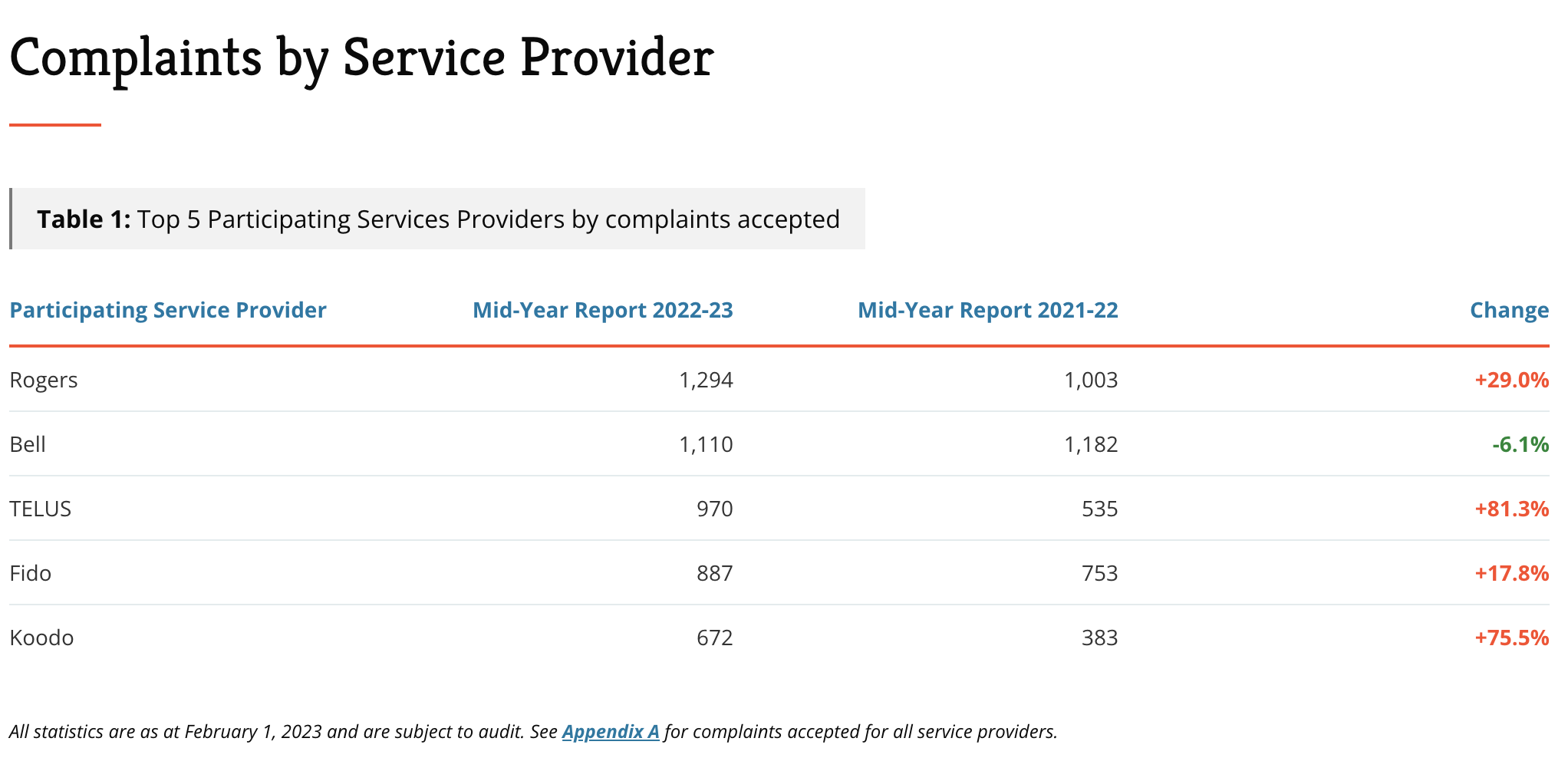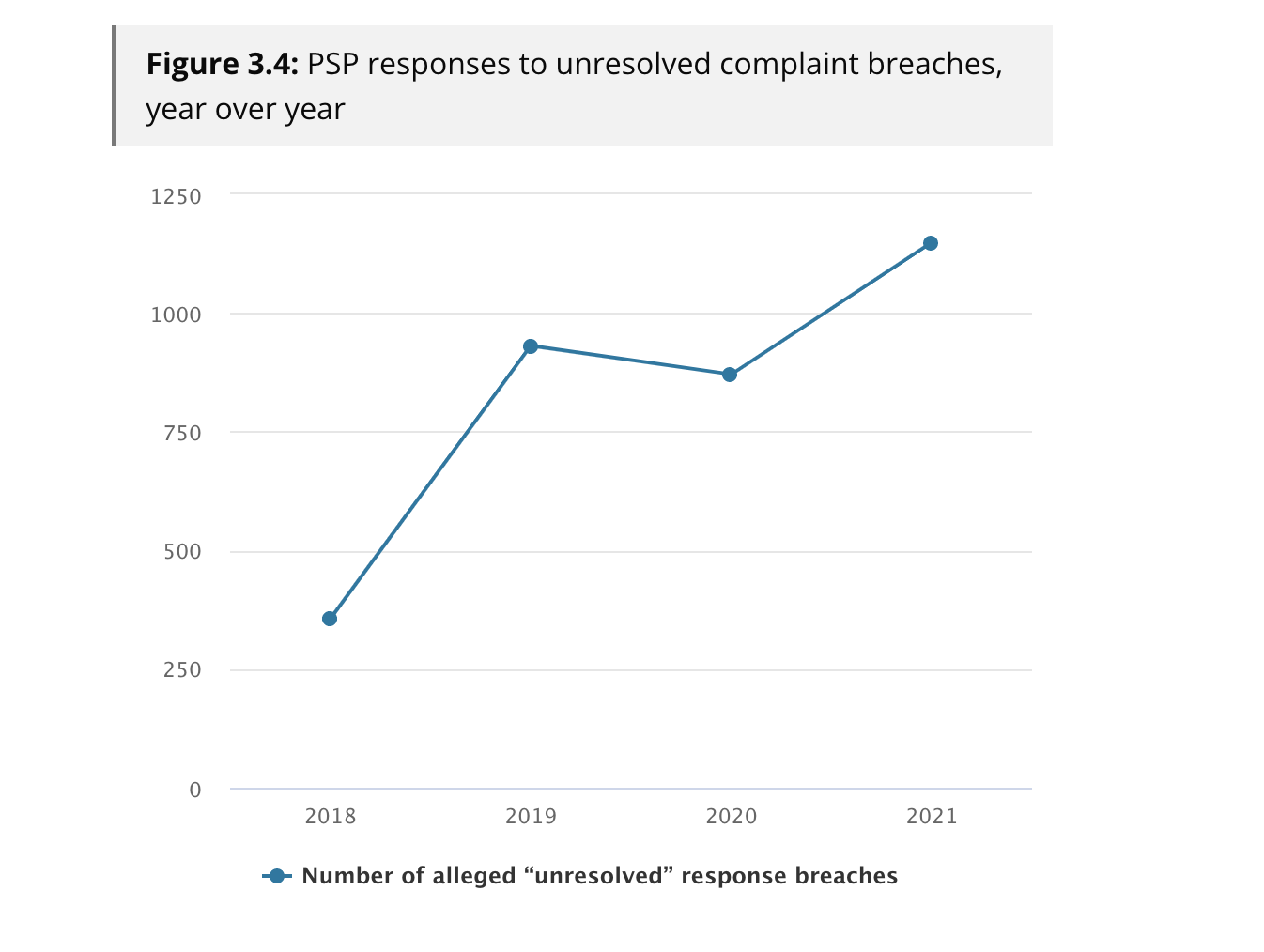Increasing numbers of Canadians are lodging complaints against telecom providers for the services they offer, according to the annual report published by the Commission for Complaints for Telecom-television Services (CCTS).
When a customer and telecom or TV service providers have a dispute they can’t resolve, consumers have the option to go to the CCTS for further assistance. Between August 2020 and July 2021, the CCTS accepted 17,000 complaints from Canadians over internet, phone, and TV services.
This is a nine percent increase from the year prior, largely driven by the increase in complaints about internet services.
More than 42,000 issues were examined, as one complaint can have a number of issues. 10 brands received more than 80 percent of the complaints.
The most complained about category was wireless services. Disclosure issues were the leading complaint for this service, occurring nearly 6,000 separate times. The report states disclosure is breached when information isn’t clearly provided.
Bell has the most disclosure issues with 1,487 complaints. This was a 34 percent decrease from last year. Rogers had 944, a 24 percent increase. The biggest increase was Videotron, at 75 percent with 770 issues.
The second most complained about category is the internet. Quality of service was the leading issue, with 2,532 complaints, likely because of the world’s increasing dependence because of pandemic
TV was in third place, and for the second time in the last three years, had seen a decline in complaints. Incorrect charges were the leading issue, with 827 complaints, a 12 percent decrease from the year prior.
Bell represented 20 percent of all complaints, an eight percent decrease from the year prior. Rogers was in second with 13.9 percent, Fido in third with 10 percent, and Telus in fourth with seven percent complaints.
Nearly 9 out of every 10 complaints, or 88 percent, were resolved by the CCTS. However, 23 percent of complaints lead to a full investigation where service provider conduct was examined.
This is measured in four aspects: wireless code for mobile wireless services, deposit and disconnection (D&D) code for home phones, television service provider (TVSP) for subscription TV services, and the internet code for all fixed internet services provided by the largest 10 internet providers.
Wireless code
This aspect guards the rights and obligations of customers with contracts in wireless voice and data services.
After investigations, this category was confirmed to have 96 breaches, a 48 percent
decrease from the year prior.
The report notes this is driven by a specific decline from Telus-owned Koodo. Last year the provider had 101 breaches of the wireless code and this year it only had four.
The biggest year-over-year change was seen in the “clarity” section. This occurs when a service provider fails to provide accurate information when communicating with customers. There were 14 confirmed breaches. In the year prior, there was only one.
The most breaches were seen in the “contracts and related documents” section, with a total of 29 complaints.
Bell had the most wireless code breaches with a total of 29. They had 27 last year.
Rogers also saw an increase, with 25 breaches this year, compared to 17 last year.
Freedom Mobile had the biggest year-over-year increase (400 percent) with a total of five complaints.
Fido, Telus, and Koodo all saw a decrease in this section.
Internet code
This was the first full year of the CCTS examining the Canadian Radio Television and Telecommunications Commission’s (CRTC) internet code.
It ensures people are informed of their rights and responsibilities, and understand the contracts, plans, and promotions internet providers bring forward.
There were 18 confirmed breaches of the code this year: 14 from Bell, and one each from Eastlink, Rogers, Shaw and Virgin Plus.
TVSP code
This code focuses on helping Canadians understand service agreements and applies only to residential customers.
In total there were five confirmed breaches, a decrease from the seven reported last year. Bell and Videotron had two breaches each and Rogers had one.
D&D code
This specifically applies to consumers who use home phones. The code aims to provide protection in the event a telecom company cuts off service.
Five confirmed breaches were reported. Three of these came from Bell and two from Comwave.
“We encourage providers to continue listening to consumers and actively work with their customers to fix problems as they arise. When they are unsuccessful, we are here to help consumers resolve disputes with their service provider,” Howard Maker, commissioner and CEO of CCTS, said in a statement.
Source: CCTS




 Public Awareness Plan
Public Awareness Plan
